Related Research Articles
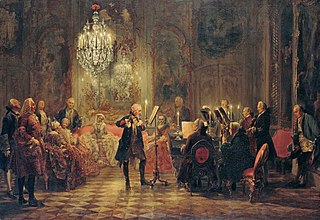
Chamber music is a form of classical music that is composed for a small group of instruments—traditionally a group that could fit in a palace chamber or a large room. Most broadly, it includes any art music that is performed by a small number of performers, with one performer to a part. However, by convention, it usually does not include solo instrument performances.

Karol Maciej Szymanowski was a Polish composer and pianist. He was a member of the modernist Young Poland movement that flourished in the late 19th and early 20th century.
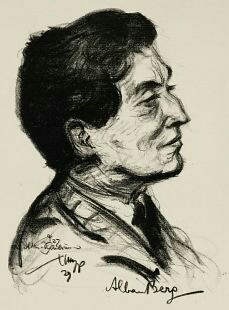
The Lyric Suite is a six-movement work for string quartet written by Alban Berg between 1925 and 1926 using methods derived from Arnold Schoenberg's twelve-tone technique. Though publicly dedicated to Alexander von Zemlinsky, the work has been shown to possess a "secret dedication" and to outline a "secret programme".
The Silesian String Quartet is a string quartet founded in 1978 by the graduates of the Karol Szymanowski Academy of Music in Katowice, Poland. Its current members are:
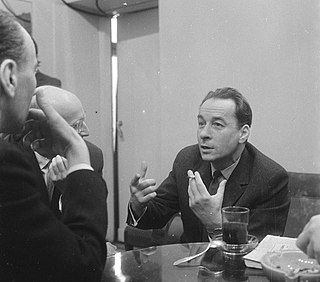
Witold Rowicki was a Polish conductor. He held principal conducting positions with the Warsaw Philharmonic Orchestra and the Bamberg Symphony Orchestra. Witold Lutoslawski's Concerto for Orchestra was dedicated to him.
The String Quartet, Op. 3, by Alban Berg was composed in 1910. It was not published until 1920.

Hagith, Op. 25, is an opera in one act by the Polish composer and pianist Karol Szymanowski. The opera premiered at the Grand Theatre, Warsaw in 1922, nine years after its creation. The libretto in German was written by the Viennese secessionist poet and Szymanowski's friend Felix Dörmann.
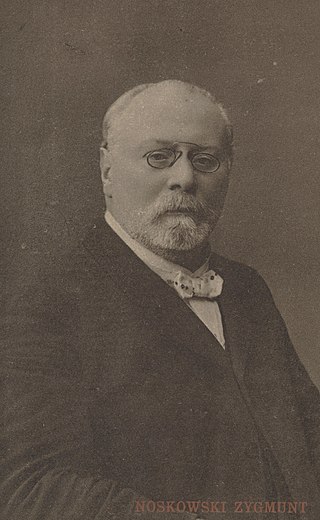
Zygmunt Noskowski was a Polish composer, conductor, and teacher.

Piotr Anderszewski is a Polish pianist and composer.
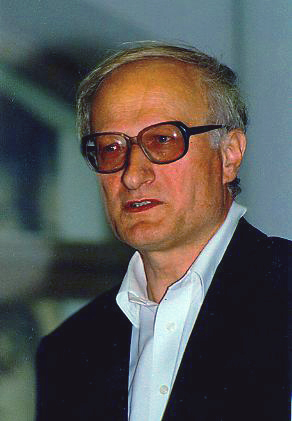
Krzysztof Meyer is a Polish composer, pianist, and music scholar, formerly dean of the Department of Music Theory (1972–1975) at the State College of Music, and president of the Union of Polish Composers (1985–1989). Meyer was professor of composition at the Hochschule für Musik in Cologne from 1987 to 2008, before his retirement.

Halina Czerny-Stefańska was a Polish pianist.

Andrzej Roman Kurylewicz, was a Polish composer, pianist, trombonist, trumpet player and conductor. His works range from serious music, including both chamber and orchestral music, to theatrical, film, ballet, and jazz. He was shaped in the tradition of classical music and pioneered Polish jazz, pursuing a parallel career. He gained nationwide popularity by writing music for Janusz Morgenstern's 1976 TV series Polskie drogi.

Wanda Wiłkomirska was a Polish violinist and academic teacher. She was known for both the classical repertoire and for her interpretation of 20th-century music, having received two Polish State Awards for promoting Polish music to the world as well as other awards for her contribution to music. She gave world premiere performances of numerous contemporary works, including music by Tadeusz Baird and Krzysztof Penderecki. Wiłkomirska performed on a violin crafted by Pietro Guarneri in 1734 in Venice. She taught at the music academies of Mannheim and Sydney.

Eugenia Umińska was a Polish violinist.
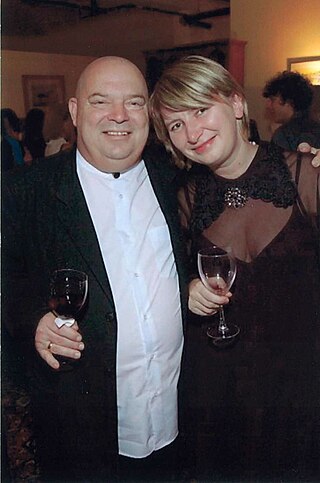
Piotr Janowski was a Polish violinist and first Polish winner of the Henryk Wieniawski Violin Competition.

The Pražák Quartet is a Czech string quartet established in 1974. It is one of the Czech Republic's premiere chamber ensembles. It was founded while its members were still students at Prague Conservatory (1974–1978). The quartet was awarded First Prize at the Evian International Competition in 1978 and the Prague Spring Festival Prize in 1979 with second places not being awarded at both the competitions to indicate the difference in level.
Jadwiga Szamotulska was a Polish pianist, pedagogue, translator of art-song lyrics and librettos, university instructor at the Academy of Music in Kraków in Kraków, performing artist with the National Philharmonic in Warsaw in Warsaw, and voice coach for the soloists of the Grand Theatre, Warsaw.

Ryszard Bukowski was a Polish composer, teacher, and music critic.

String Quartet No. 1 "Already it is Dusk" Op. 62, is a composition for string quartet by Henryk Górecki. Written in 1988 after a long period of focus on vocal music, it was first performed by the Kronos Quartet on 21 January 1989 at the Walker Art Center in Minneapolis. All three of Górecki's string quartets were written for the Kronos Quartet. It is published by Boosey & Hawkes and PWM Edition.
References
- ↑ Thomas p. 5
- ↑ Stowell p. 305
- 1 2 Iwanicka-Nijakowska, Anna (September 2007).(30 April 2014). String Quartet No. 1 in C major Op. 37 - Karol Szymanowski. Adam Mickiewicz Institute (culture.pl). Retrieved 12 March 2015.
- ↑ "String Quartet No. 1 in C major Op. 37 - Karol Szymanowski" . Retrieved 1 August 2021.
- ↑ Będkowski, Stanisław and Hrabia, Stanisław (2001). Witold Lutosławski: A Bio-bibliography, p. 83. Greenwood Publishing Group
- ↑ Szumanowski, Karol. "Karol Szymanowski - The Wilanów Quartet* – Two String Quartets". Discogs.
- ↑ "Carmina Quartett | String Quartet" . Retrieved 2024-02-22.
- ↑ "Szymanowski/Webern Works for String Quartet". Gramophone. Retrieved 2024-02-22.
- ↑ Szymanowski, Karol. "Szymanowski* / Webern* / Carmina Quartet – String Quartets (No.1 In C Major, Op.37 / No.2, Op.56) / Langsamer Satz". discogs.
- Stowell, Robin (2003). The Cambridge Companion to the String Quartet. Cambridge University Press
- Thomas, Adrian (2005). Polish Music since Szymanowski. Cambridge University Press.